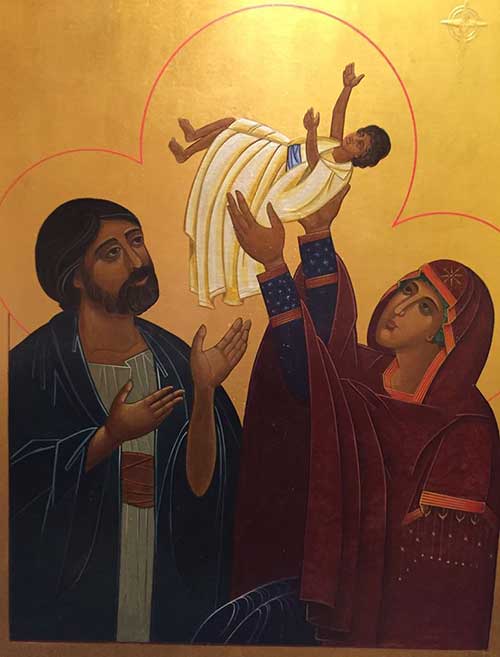
We tend to speak about “secular” as if it is the human foundational operating system, and that, somehow, religion is superimposed as an application, a program, on top of that (choose from some popular programs, all doing similar things); as if atheists declutter the unnecessary program, getting back to the foundational operating system – secularism.
But a moment’s examination of the secular operating system helps us spot that this is particularly a post-Christian phenomenon. It is no accident that secularism is born from Christianity – it has the incarnation, unacknowledged yes, at its heart. Secularism isn’t an abandonment of the sacred. The secular is finding that the ordinary is sacred.
Peter Wehner, a senior fellow at the Ethics and Public Policy Center, has helpfully recently highlighted this in an article, The Christmas Revolution.
- The incarnation affirms the delight we take in earthly beauty and our obligation to care for God’s creation. This was a dramatic overturning of ancient thought.
In Plato’s dualism, there was a dramatic disjuncture between ideal forms and actual bodies, between the physical and the spiritual worlds. According to Plato, what we perceive with our senses is illusory, a distorted shadow of reality. Hence philosophy’s most famous imagery — Plato’s shadow on the cave — where those in the cave mistook the shadows for real people and named them.
This Platonic view had considerable influence in the early church, but that influence faded because it was in tension with Christianity’s deepest teachings.
- “Christianity was to introduce the notion that humanity was fundamentally identical, that men were equal in dignity — an unprecedented idea at the time, and one to which our world owes its entire democratic inheritance.” in A Brief History of Thought: A Philosophical Guide to Living (Learning to Live)
by Luc Ferry.
- We moderns assume that compassion for the poor and marginalized is natural and universal. But actually we think in this humanistic manner in large measure because of Christianity.
- It helps those of us of the Christian faith to avoid turning God into an abstract set of principles. Accounts of how Jesus interacted in this messy, complicated, broken world, through actions that stunned the people of his time, allow us to learn compassion in ways that being handed a moral rule book never could.
What do you think?
Whether you regard the Christmas Season as concluding on Christmas Day, Epiphany, the Baptism of the Lord, Candlemas, the Sunday following Candlemas, or are Orthodox, or Armenian, and celebrate the Incarnation on another day and see the season differently… in the Southern Hemisphere, and certainly in Aotearoa-New Zealand, this is our go-slow time…
If you appreciated this post, do remember to like the liturgy facebook page, use the RSS feed, and signing up for a not-very-often email, …


